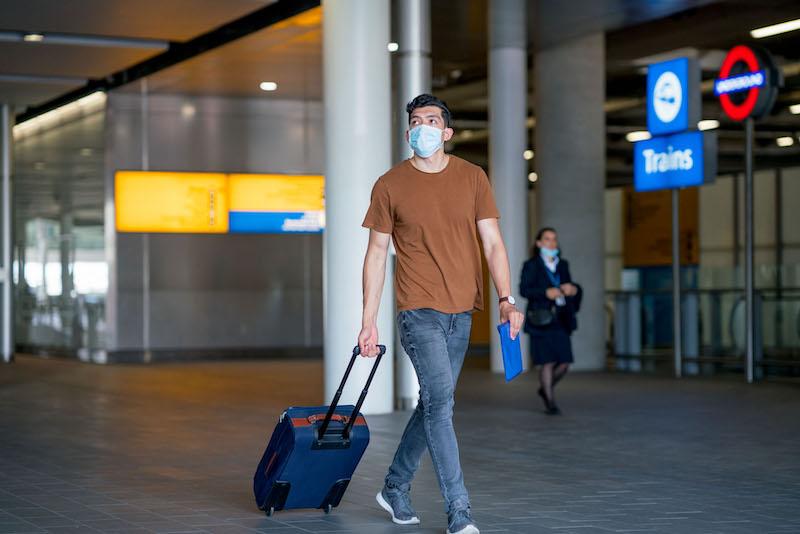
International passengers arriving in England from Feb. 15 will be required to undergo three self-funded COVID-19 tests, in addition to being quarantined.
Passengers caught not complying with the new English rules—which cover quarantine, testing and enforcement—could face a £10,000 ($13,727) fine and up to 10 years in jail. Airlines will also be fined for passenger non-compliance.
“This new system is for England. And we're working on similarly tough schemes with the devolved administrations [in Scotland, Wales and Northern Ireland] and working with the Irish government to put in place a system that works across the common travel area,” UK health secretary Matt Hancock told the House of Commons on Feb. 9.
All UK routes on which passengers were exempt from quarantine were closed on Jan. 18 to mitigate the spread of COVID-19. It is currently illegal to travel abroad from the UK without a permitted reason. Leisure travel is banned.
Since Jan. 18, all arriving passengers in the UK have had to test negative to for the virus 72 hours before traveling, and then self-isolate for 10 days after arrival. Under the "test to release" scheme, passengers can be released from quarantine if they test negative after five days.
“Arriving in this country involves a two-week process for all. We've already banned travelers altogether from the 33 most concerning countries on our ‘red list,’ where the risk of new variants is greatest, unless they're a resident here,” Hancock said.
However, the tighter rules for English airports will take effect on Feb. 15, requiring all international arrivals to take further mandatory tests on days two and eight of their home or hotel quarantine. London Heathrow (LHR) is the country's primary international gateway.
The tests must be booked online before arrival (the portal will go live on Feb. 11). If either post-arrival test comes back positive, genomic sequencing will be used to confirm if the case is a variant of concern and the passenger’s quarantine will be extended for a further 10 days.
UK and Irish residents returning home from the 33 "red list" countries (including Argentina, Brazil, Chile, Colombia, Portugal, South Africa and the United Arab Emirates) will be required to complete their 10-day quarantine in an assigned hotel, at their own expense.
“Before they travel, they'll have to book through an online platform and pay for a quarantine package costing £1,750 for an individual traveling alone, which includes the hotel, transport and testing. This booking system will go live on [Feb. 11], when will also publish the full detailed guidance,” Hancock said.
“Passengers will only be able to enter the UK through a small number of ports that currently account for the vast majority of passenger arrivals. When they arrive, they'll be escorted to a designated hotel, which will be closed to guests who aren't quarantining, for 10 days or for longer if they test positive for COVID-19 during their stay.
"We've contracted 16 hotels for an initial 4,600 rooms and we will secure more as they're needed. People will need to remain in their rooms and, of course, will not be allowed to mix with other guests. There'll be visible security in place to ensure compliance.”
Any passengers who break quarantine will be fined £5,000, rising to £10,000 if they were meant to stay in a designated hotel.
Hancock said: “We're also coming down hard on people who provide false information on the passenger locator form. Anyone who lies on the passenger locator form and tries to conceal that they've been in a country on the red list in the 10 days before arrival here will face a prison sentence of up to 10 years. These measures will be put into law this week. I make no apologies for the strength of these measures, because we're dealing with one of the strongest threats to our public health that we've faced as a nation.”
Hancock said the government has been working with airlines, airports, border control and the police “to get this right.”
Hancock said containing the spread of new COVID-19 variants is “mission-critical,” while the UK rolls out a vaccination program. The UK has already vaccinated over 12.4 million people, almost a quarter of the adult population.
UK COVID-19 cases have fallen 47% over the past two weeks, although hospitalizations remain higher than during the April and November 2020 peaks.
Photo credit: London Heathrow Airport





